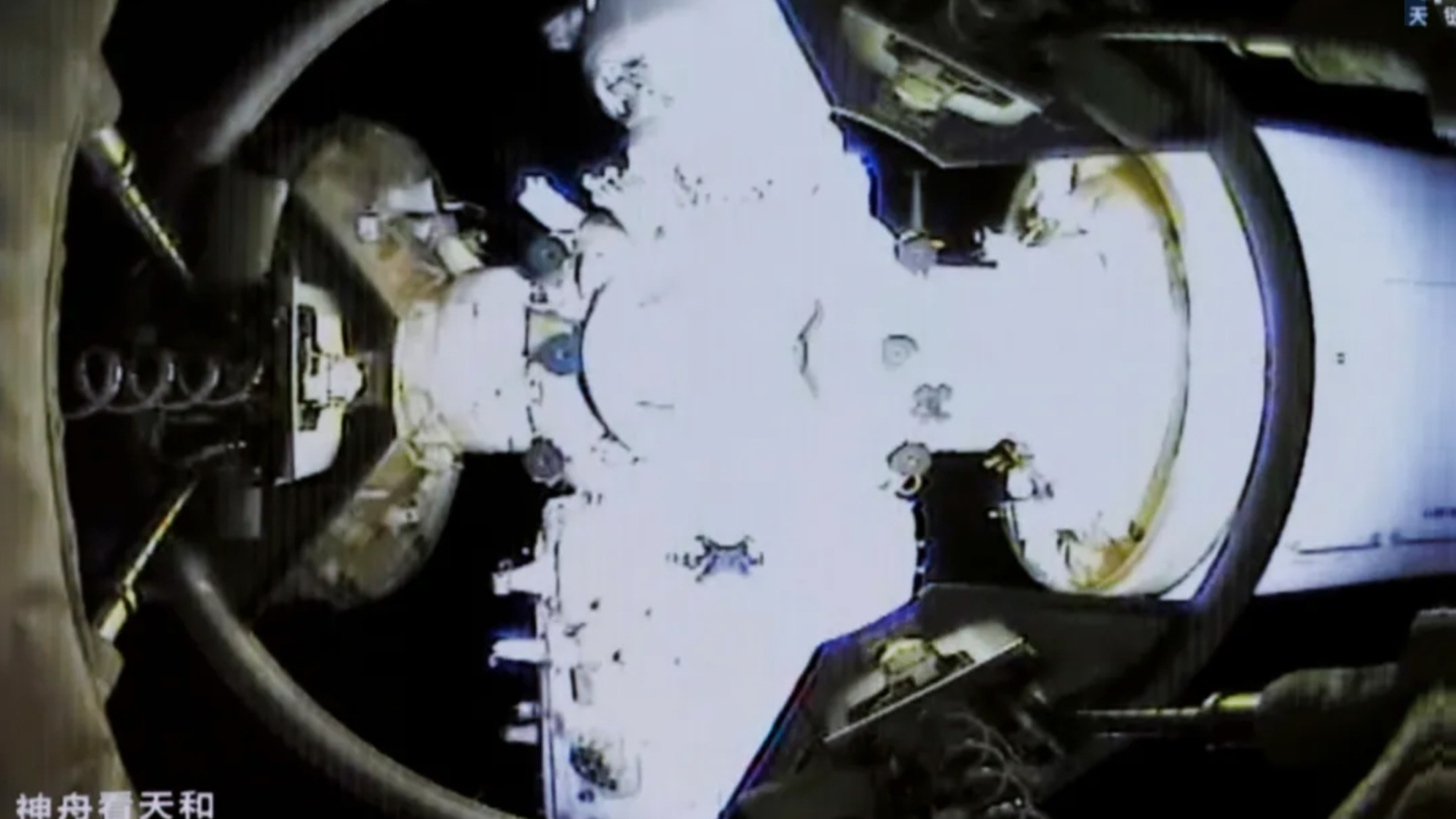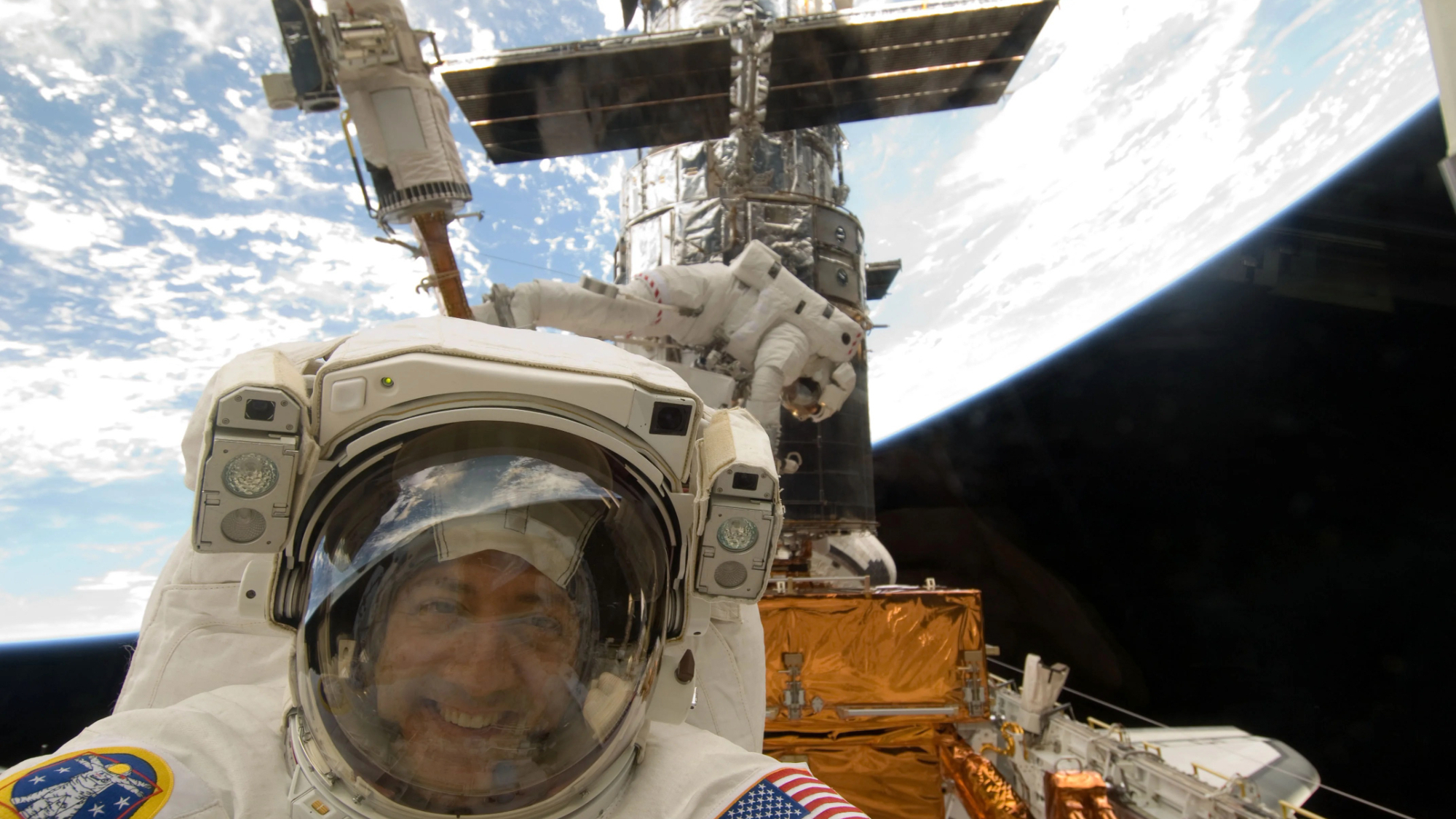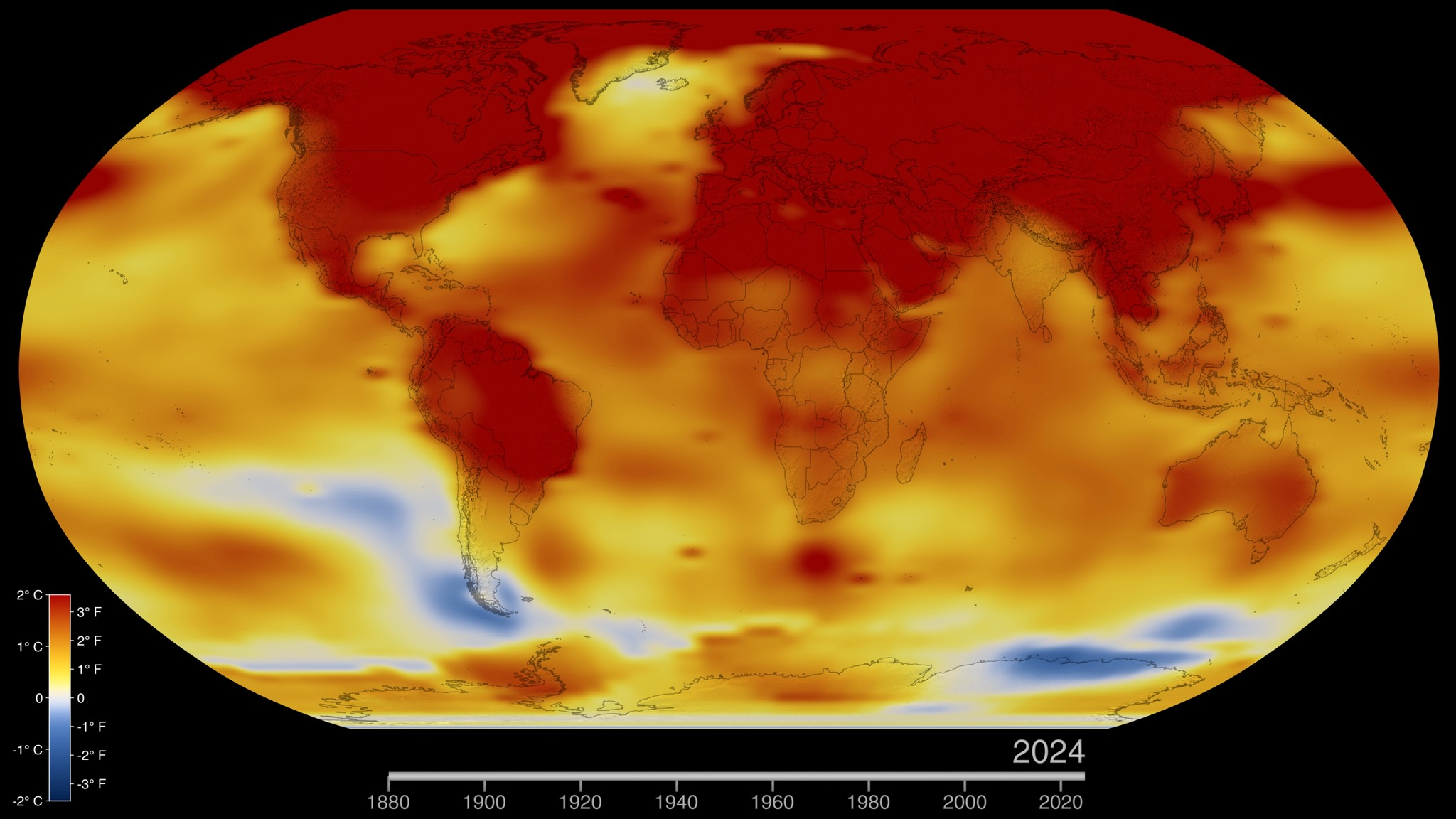
Space tourists will face big risks, as private companies gear up for paid suborbital flights

This article was originally published at The Conversation. The publication contributed the article to Space.com's Expert Voices: Op-Ed & Insights.
Sara M. Langston, Assistant Professor of Spaceflight Operations, Embry-Riddle Aeronautical University
On May 30, 2020, millions of Americans watched the inaugural SpaceX Crew Dragon launch NASA astronauts to the International Space Station. This mission marked two significant events: First, the return of launch to orbit capability for human spaceflight from the United States. Secondly, it successfully demonstrated private sector capability to build and operate a launch vehicle for human spaceflight.
While SpaceX may be the first private space company to accomplish this, it is not alone. Boeing’s Starliner and Lockheed’s Orion capsule are also being developed for NASA’s Commercial Crew Program, and training has begun for safety operations on the spacecraft.
As an aerospace lawyer working and teaching on human spaceflight law and policy for over a decade, I have a professional and personal appreciation for current spaceflight technologies and astronaut developments.
For many, the Crew Dragon launch marked the start to a new era of commercial access to space and private human spaceflight. However, given logistical and destination requirements for Earth orbit or beyond, the onset of larger-scale private human spaceflight is more likely to emerge within the suborbital space market.
Related: The first space tourists in photos
Get the Space.com Newsletter
Breaking space news, the latest updates on rocket launches, skywatching events and more!
Commercial suborbital flights coming next
A suborbital flight, in contrast to SpaceX’s recent orbital flight, is a brief spaceflight that fails to complete one full orbit of the Earth. That is, you launch your space vehicle to the edge of space and come right back down. Virgin Galactic has been inching closer to commercial suborbital launch operator status with successful crewed test flights in February 2019. In fact, Virgin Galactic’s SpaceShipTwo, an air-launched suborbital rocket, and Blue Origin’s New Shepard, a rocket-launched space capsule, are projected to commence suborbital flights catering to both space tourists and scientific research this year. Each suborbital flight presents a unique spaceflight experience, trajectory and set of regulatory requirements.
While industry continues to test and refine tech and operations, the Federal Aviation Administration – which regulates launch, reentry and spaceports for U.S. commercial spaceflight – is also morphing to address the needs of the emerging private space industry.
What you need to know before you fly to space
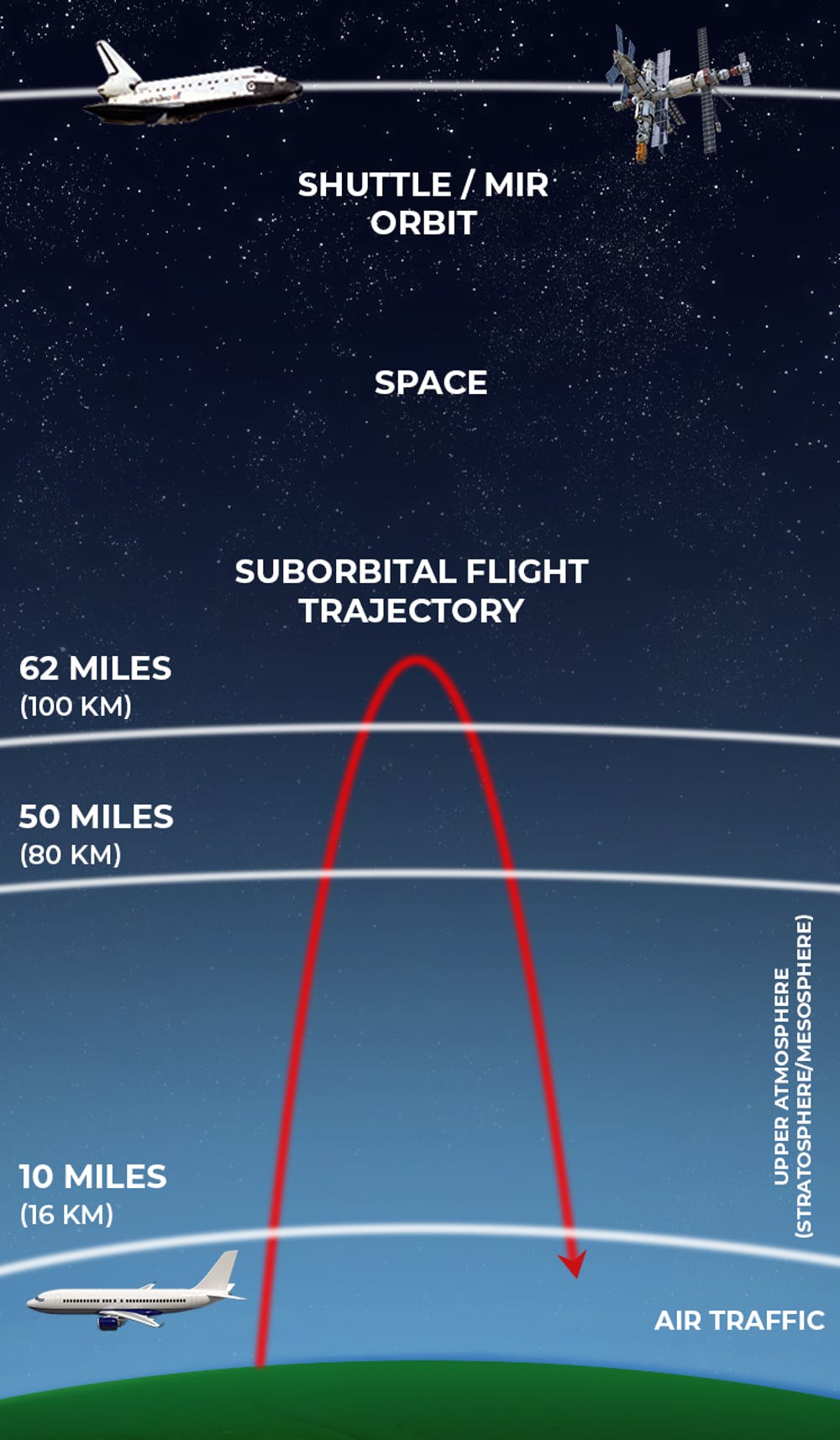
Spaceflight is regarded as an inherently dangerous activity. While some hazards of spaceflight and the space environment – like G-forces, radiation, vibration and microgravity – are well documented, many risks remain unknown. The scope of physiological risks spans pre-flight, in-flight, and post-flight operations and activities.
FAA regulations also focus on the safety and protection of the public on the ground, not the civilian passengers who are called spaceflight participants. This includes anyone who is not crew or a government astronaut on a spacecraft.
As a result, regulations stipulate minimum requirements with regard to medical fitness and training for space tourists, as well as informed consent, and waivers of liability to protect the launch operator.
So prospective space participants are taking a big risk.
Medical criteria
No standardized medical criteria exists for screening or selecting spaceflight participants. Unlike flight crew which require a Class II airman’s medical certificate, there is no similar requirement for fitness to fly for space tourists. Where the law is silent or lacking, the FAA’s Recommended Practices for Human Space Flight Occupant Safety can provide general guidance.
Here the FAA recommends a spaceflight participant receive a medical consultation within 12 months of flight from a physician trained or familiar with aerospace medicine. Since this is a not a legal requirement, ultimately it will be up to the launch operator to determine fitness-to-fly and “no-go” criteria for preexisting conditions.
Virgin Galactic, for example, has few restrictions: no upper age limit, and weight limit only as it relates to practical space vehicle requirements.
When it comes to the risks from radiation, the FAA tries to reduce the exposure for crew members. But it considers the radiation risks of a space tourist taking a single suborbital joy ride as insignificant.
Training
Similar to how airlines provide safety information before a flight, the launch operators are required to instruct space tourists on how to respond to emergency situations including smoke, fire, loss of cabin pressure and emergency exit.
This is a minimal requirement, and each launch operator determines its training protocol. Virgin Galactic, for instance, offers a three-day training with a focus on participant’s gear, communications and function, and spacecraft cabin.
Flight crew, in contrast, must be trained and qualified to perform their critical functions, and withstand the pressures of spaceflight. Orbital or long-duration spaceflights, however, will likely require more stringent commercial industry training protocols than for suborbital flights.
Informed consent
The FAA set the age requirement for civilian participants at 18 years.
This is necessary to ensure the participant can provide informed consent. In addition, the regulations dictate that the launch operator inform crews and participants that the U.S. government does not certify the spaceflight and space vehicle as safe for humans.
The launch operator must also inform the participants in writing of the risks of launch and reentry, the safety record of the vehicle, and that both known and unknown space hazards and risks could result in serious injury, either partial or total physical or mental disability.
Waivers of liability
The spaceflight participant is also required to sign a reciprocal waiver of liability with the commercial launch operator and an indemnification agreement with the Federal Government.
However, participants don’t sign a waiver with other participants. Meaning, if an accident occurs, spaceflight participants can sue each other but generally not the launch operator or the government.
To protect oneself, it would be advisable to take out insurance. A few companies, including AXA XL and Allianz, are beginning to offer third-party liability insurance for civilians to engage in spaceflight.
The space industry expects that many people may want to go to space in the near future, and private spaceflight is being marketed as the next experience in luxury escapism and scientific research.
But the hazardous nature of spaceflight also requires critical understanding of the risks and uncertainties in human spaceflight. The industry is still in its infancy, and the best practices and regulations for human spaceflight are still evolving.
[Insight, in your inbox each day. You can get it with The Conversation’s email newsletter.]
This article is republished from The Conversation under a Creative Commons license. Read the original article.
Follow all of the Expert Voices issues and debates — and become part of the discussion — on Facebook and Twitter. The views expressed are those of the author and do not necessarily reflect the views of the publisher.
Join our Space Forums to keep talking space on the latest missions, night sky and more! And if you have a news tip, correction or comment, let us know at: community@space.com.
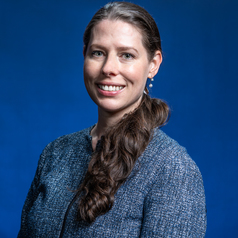
Dr. Langston is an Assistant Professor of Spaceflight Operations in the Department of Applied Aviation Sciences at Embry-Riddle Aeronautical University. In addition, she is an aerospace lawyer, ethicist, and Army veteran with a technical military aviation background. As a legal consultant, she has consulted with government agencies and private industry on legalities of aerospace applications and commercial human spaceflight. Dr. Langston holds a Ph.D. in the History and Philosophy of Science; a J.D. with specialization in Public International Law; an LL.M. (Adv.) in Air and Space Law; and a Space Studies Certificate in Physical Sciences from the International Space University. She is a member of the International Institute of Space Law and is admitted to practice law in New York and the District of Columbia. In addition, Dr Langston was selected as a UNOOSA Space4Women Mentor (2020-21).




